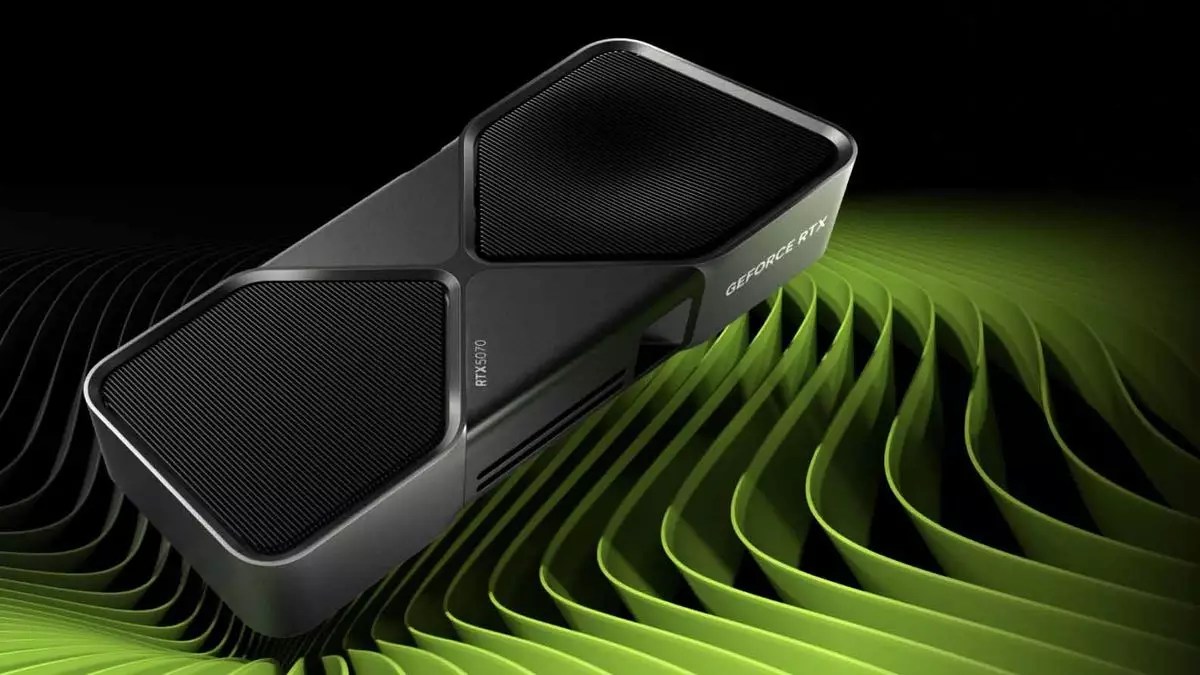The unveiling of the Nvidia GeForce RTX 5070 during CES 2025 has significantly impacted the gaming and tech communities, igniting conversations about the future of graphics processing units (GPUs). Although it is positioned as the least powerful in the new 50-series lineup, the RTX 5070 claims to deliver incredible performance at a relatively accessible price point of $549. This article explores the nuances of the RTX 5070, its comparative performance against its predecessor, the RTX 4090, and the implications of Nvidia’s latest technology innovations.
The announcement by Nvidia, particularly the statement from CEO Jen-Hsun Huang asserting that the RTX 5070 delivers “RTX 4090 performance at $549,” has raised eyebrows and set high expectations among gamers and tech enthusiasts alike. However, skepticism remains due to the inherent variability in GPU performance across different games and settings. Early access provided to tech journalists, notably from PCGamesN, has yielded promising findings: during a test of the game **Marvel Rivals**, the RTX 5070 reportedly outperformed the RTX 4090, marking an impressive milestone for a lower-tier card.
The benchmark results shared by PCGamesN indicate that while playing at 4K resolution with maximum DLSS settings, the RTX 5070 achieved an average of 240 fps compared to 180 fps from the RTX 4090. These figures lend credence to Huang’s claim, but one must approach such findings with caution. As the test was conducted on tailored systems potentially optimized for the RTX 5070, and with the use of advanced DLSS 4 technology, replicating these results in diverse gaming contexts may prove challenging.
Nvidia’s Deep Learning Super Sampling (DLSS) technology has become pivotal in enhancing frame rates and visual fidelity in modern gaming. The introduction of DLSS 4 Multi Frame Generation, which allows for the generation of additional frames using AI algorithms, serves as a significant differentiator for the RTX 5070. By intelligently inferring frames between traditionally rendered images, this new feature enhances performance far beyond what previous generations could achieve.
However, this advancement raises important questions about the direction of gaming technology. The reliance on AI-driven enhancements, as Huang suggested, signifies a shift away from pure raster graphics rendering. While the RTX 5070’s performance could entice budget-conscious gamers, some purists might argue that such enhancements dilute the authenticity of gaming experiences. The notion of computers completing frames on behalf of developers could arguably lead to a future where in-depth optimization becomes less critical as AI capabilities continue to improve.
The test between the RTX 5070 and the RTX 4090, while revealing in certain contexts, begs for deeper scrutiny. Notably, the performance metrics reported were specific to **Marvel Rivals**, a title likely optimized for Nvidia’s current graphics technology. Similar results may not hold across a broader spectrum of games, suggesting that the RTX 5070’s advantages may not be universally applicable. Reports indicate that in other gaming scenarios, the performance gap narrows significantly, raising doubts about the RTX 5070’s consistent superiority.
Moreover, Nvidia itself acknowledged that comparisons drawn in controlled environments are not necessarily representative of typical gaming performance. This caveat suggests that while the RTX 5070 may offer enticing specs, its practical benefits may vary depending on the gaming context and specific titles at play.
The potential of the RTX 5070 to deliver premium performance at a lower cost brings a refreshing dynamic to the GPU market. Historically, high-end graphics cards often came with steep price tags, limiting accessibility for average gamers. If the RTX 5070 can indeed bridge that gap by delivering high performance on popular gaming titles without breaking the bank, it could usher in a new era in GPU consumerism.
While initial impressions of the Nvidia GeForce RTX 5070 appear promising, especially against the backdrop of its ED predecessor, consumers should remain discerning. The blend of cutting-edge technology and competitive pricing positions the RTX 5070 as a potential game-changer, provided it ultimately lives up to the lofty claims made at CES 2025. Only time, and further testing across a variety of gaming environments, will reveal the true value and capabilities of this intriguing addition to the Nvidia lineup.


Leave a Reply